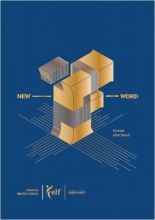Brexit took us all by surprise. Following the referendum, we woke up not believing what we were seeing and hearing. Alas it happened! We, who believed in the great European project, in the Union as a permanent element of our political life, a guarantor of security and development, didn’t know how to react. We, who until the polls closed believed in the validity of our rational arguments and were convinced that the emotional campaign that took place in the United Kingdom could not end in success observed the triumph of the “leave” campaign with disbelief. The helplessness exhibited by Farage and Johnson brought no consolation, nor did Cameron’s demise. Brexit gave impetus to extremist parties in the whole of Europe. It awoke the demons of nationalism and the hopes of the Eurosceptics for “recovering nation states”. The French demon is already announcing a similar referendum, if it comes to inhabit the Élysée Palace. The Eurobarometer is indicating that both the French and the Italians mostly support similar referendums, although the majority would still vote against leaving the EU. Jarosław Kaczyński also used the commotion caused by Brexit to announce his plan of writing new treaties and limiting the Union. What about us? Are we capable of more than complaing and looking for ways of avenging the British people? What is better, hard Brexit or dirty Brexit? What can we do to make them crawl back on their knees? We need a plan, and it has to be a good one if it will help us bring energy back to Europe and hope to the Europeans. However, we must first figure out what kind of Europe we want. Also on the verbal plane. What will happen to the dream of federalism. Will it merely remain wishful thinking on the part of Guy Verhofstadt and a handful of federalists? Federalism, the F word, has for a long time sounded like a bad word that was uttered with unease. But if not a federal Union, then what? What should the New F Word be? We asked the question to the participants of the “New F Word” conference that took place in Warsaw. To my surprise, many panelists and guests continue to defend the idea of federalism. The change that I perceive, is the direction that must be chosen to achieve this goal. Comments about a Europe of two speeds can be increasingly heard. It was once a way to scare procrastinators, today it is seen as a concept that can help uphold integration. Some readers will deem this the final capitulation of the camp of the Euro-enthusiasts. I perceive it as a sign of healthy rationalism. What were the other “New F Word” propositions?
